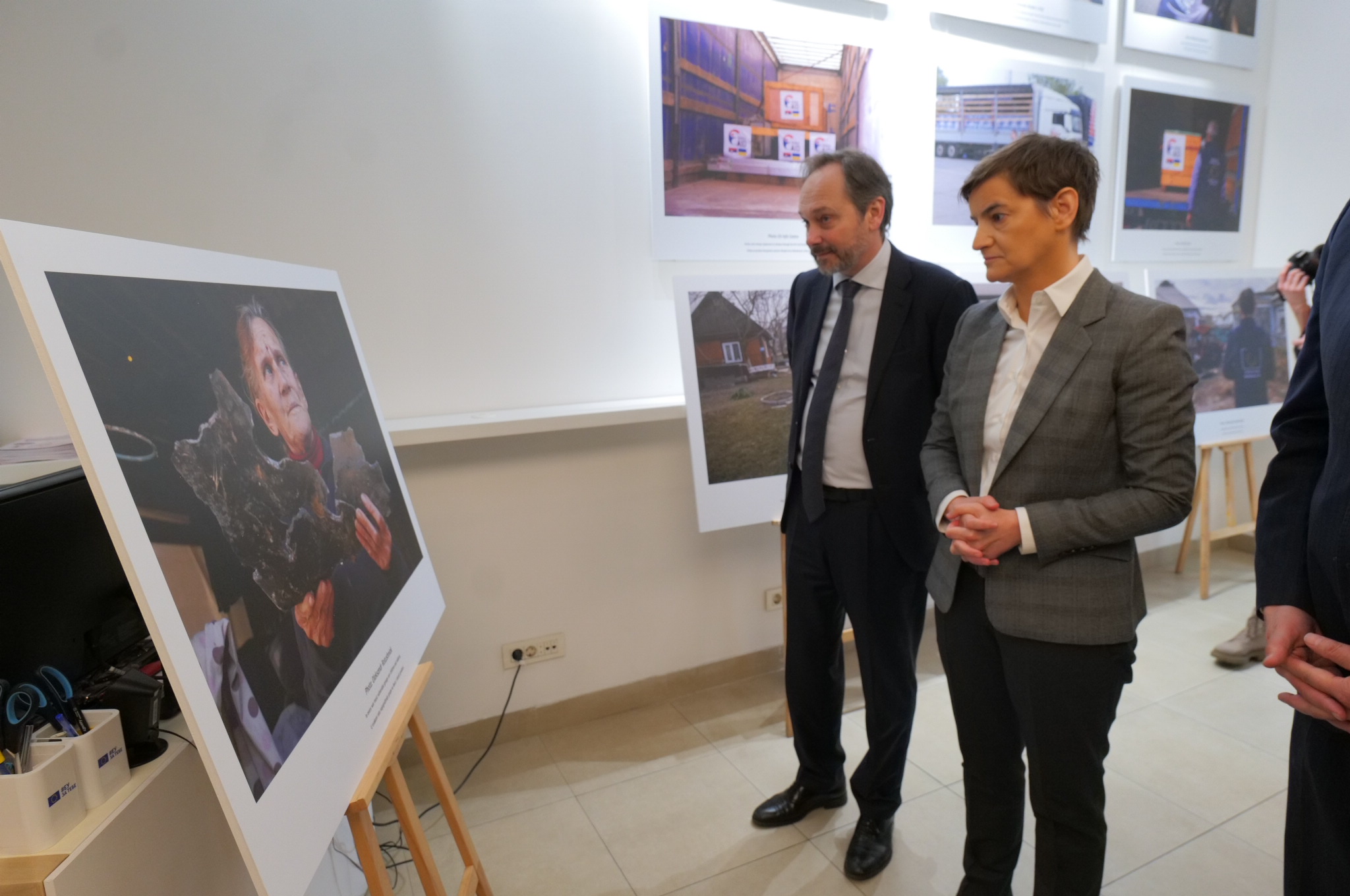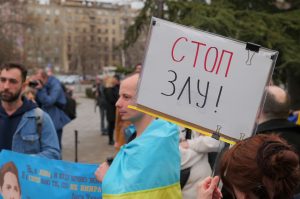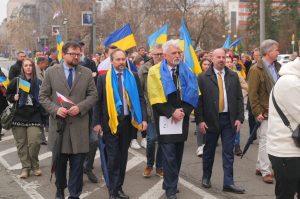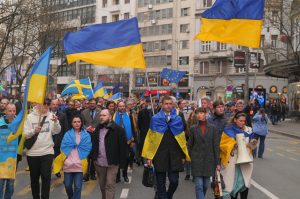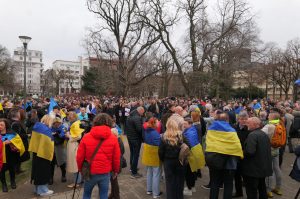We are not giving up on solidarity with Ukraine – this is the main message after a series of events marking the second anniversary of the Russian invasion of Ukraine.
At the EU Info Centre, the exhibition “Solidarity with Ukraine” was opened. Alongside showcasing examples of assistance from the European Union and Serbia, the exhibition depicted scenes from the daily lives of Ukrainians during the war. Emanuele Giaufret, the EU Ambassador to Serbia, Volodymyr Tolkach, the Ukrainian Ambassador to Serbia, and Serbian Prime Minister Ana Brnabić attended the opening.
Since the start of Russia’s full-scale invasion, the humanitarian needs in Ukraine have risen to unprecedented levels. With severe damage to housing, water and electricity supply, heating and public infrastructure such as schools and health facilities, the impact of the ongoing war in Ukraine on civilians is staggering. Millions of people have no access to basic needs and millions, most of which are women and children, were forced to leave their homes because of the Russian aggression.
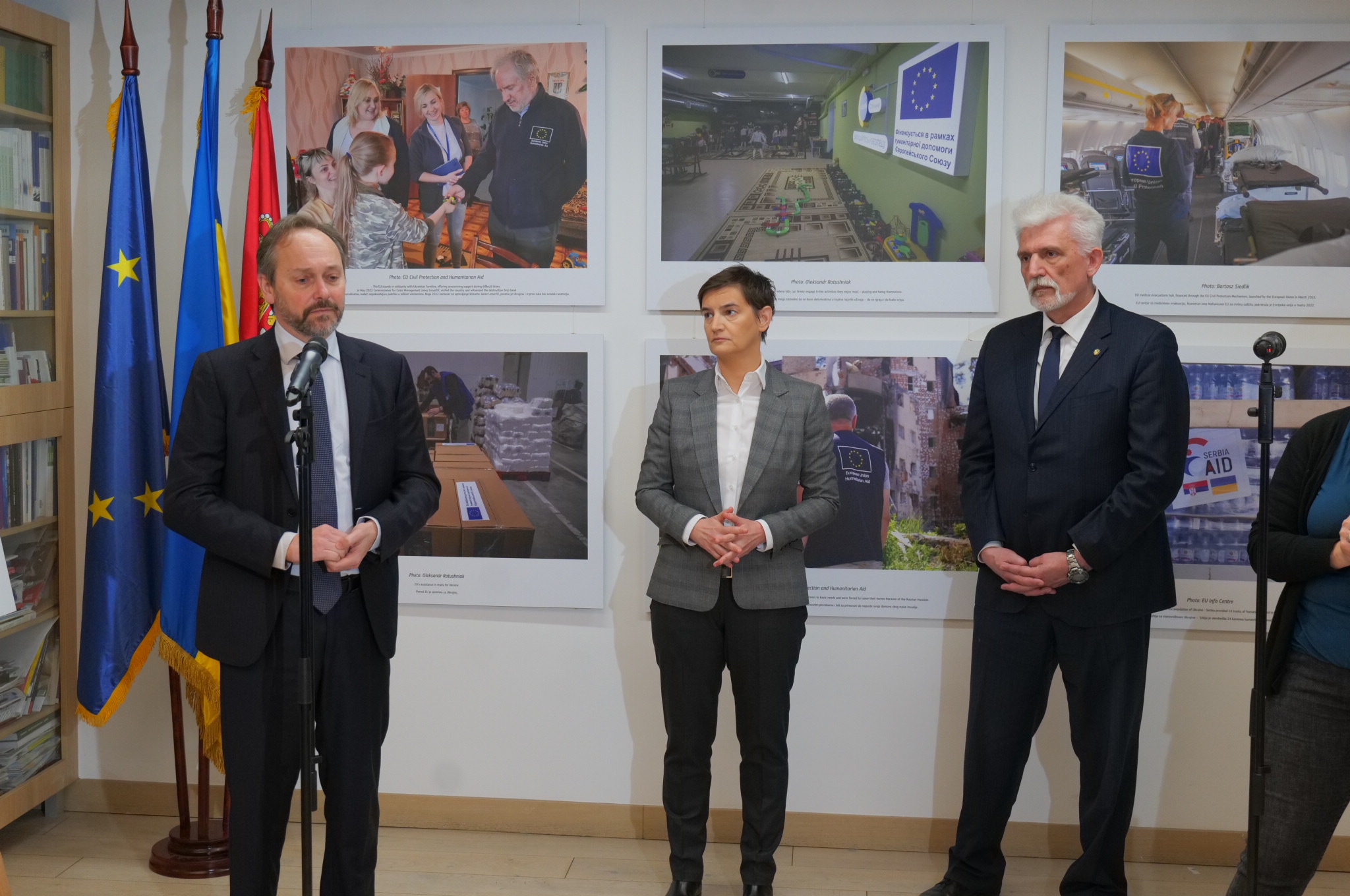
Ambassador Giaufret highlighted that the EU will support Ukraine in Russia’s war of aggression as long as it takes. Its member states, and international financial institutions have collectively provided Ukraine with approximately EUR 88 billion in financial, humanitarian, and military aid since the war began.
“At the same time, we want to continue the process of integrating Ukraine into the European Union. Ukraine has received the status of a candidate country, we have launched the negotiations that are moving on, we are right now working on the negotiating framework. This is part of the wider momentum for the Enlargement process, which was triggered by this horrible aggression by Russia. The Western Balkans will also see new initiatives to accelerate enlargement of the EU towards our friends”, stated Ambassador Giaufret.
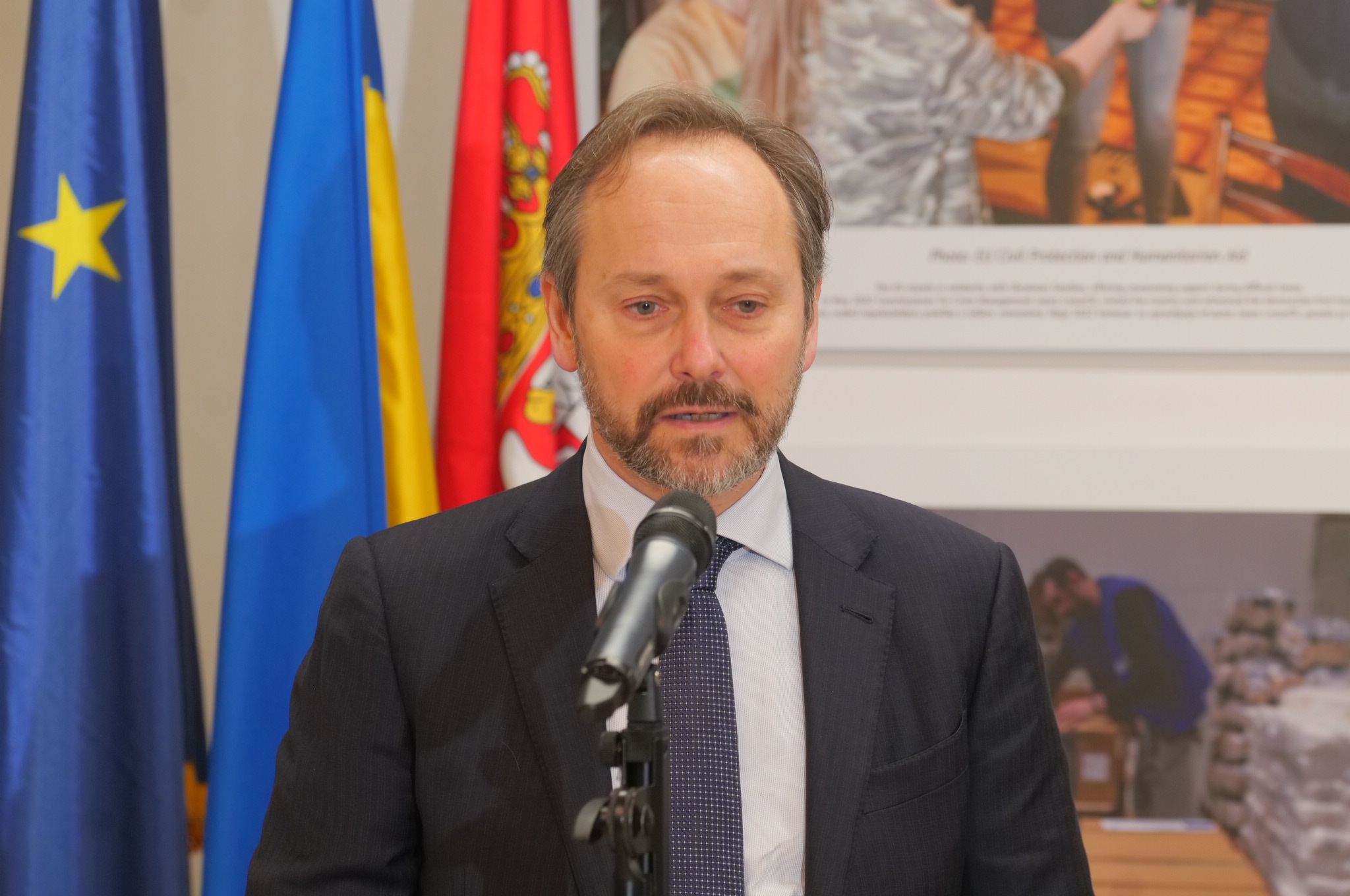
Prime Minister Brnabić affirmed Serbia’s support for Ukraine’s European aspirations and readiness to offer technical assistance. She underscored Serbia’s willingness to accommodate as many Ukrainian refugees as necessary, noting that the country has provided substantial aid over the past two years, including direct financial assistance of EUR 3 million for Ukrainian children and an additional EUR 1.5 million for internally displaced persons.
“I hope for peace in the near future. Rest assured, you can always count on our help and support. We stand by you as friends and brothers, for Ukraine is our friend, and the Ukrainian people are our brotherly people,” remarked the Prime Minister.
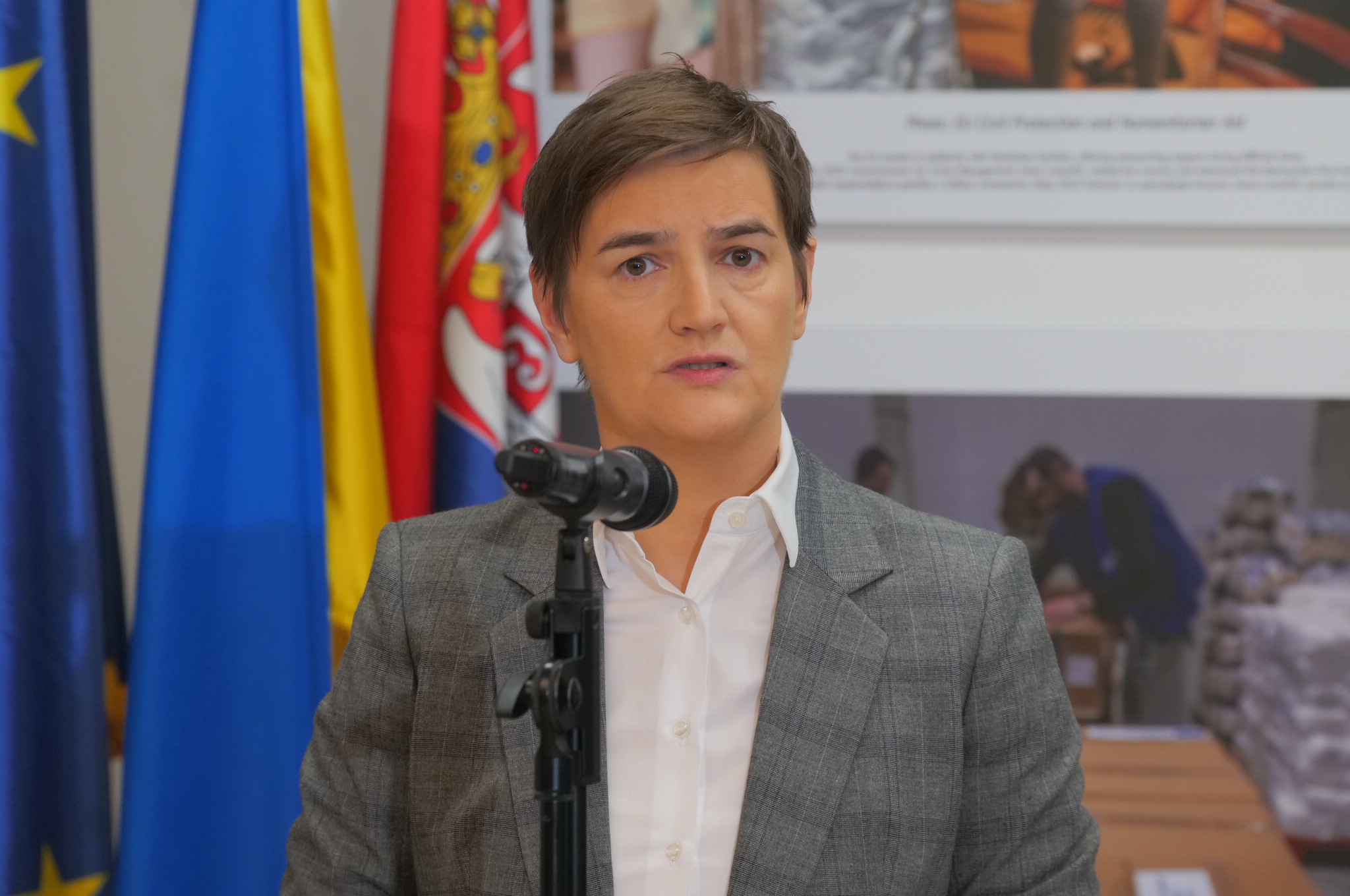
Ambassador Tolkach stressed the significance of solidarity in Ukraine’s quest for independence.
“Ukrainians aspire to integrate with the European Union, a goal we share—to become part of the European family. I believe we are making strides toward achieving that,” said Ambassador Tolkach.
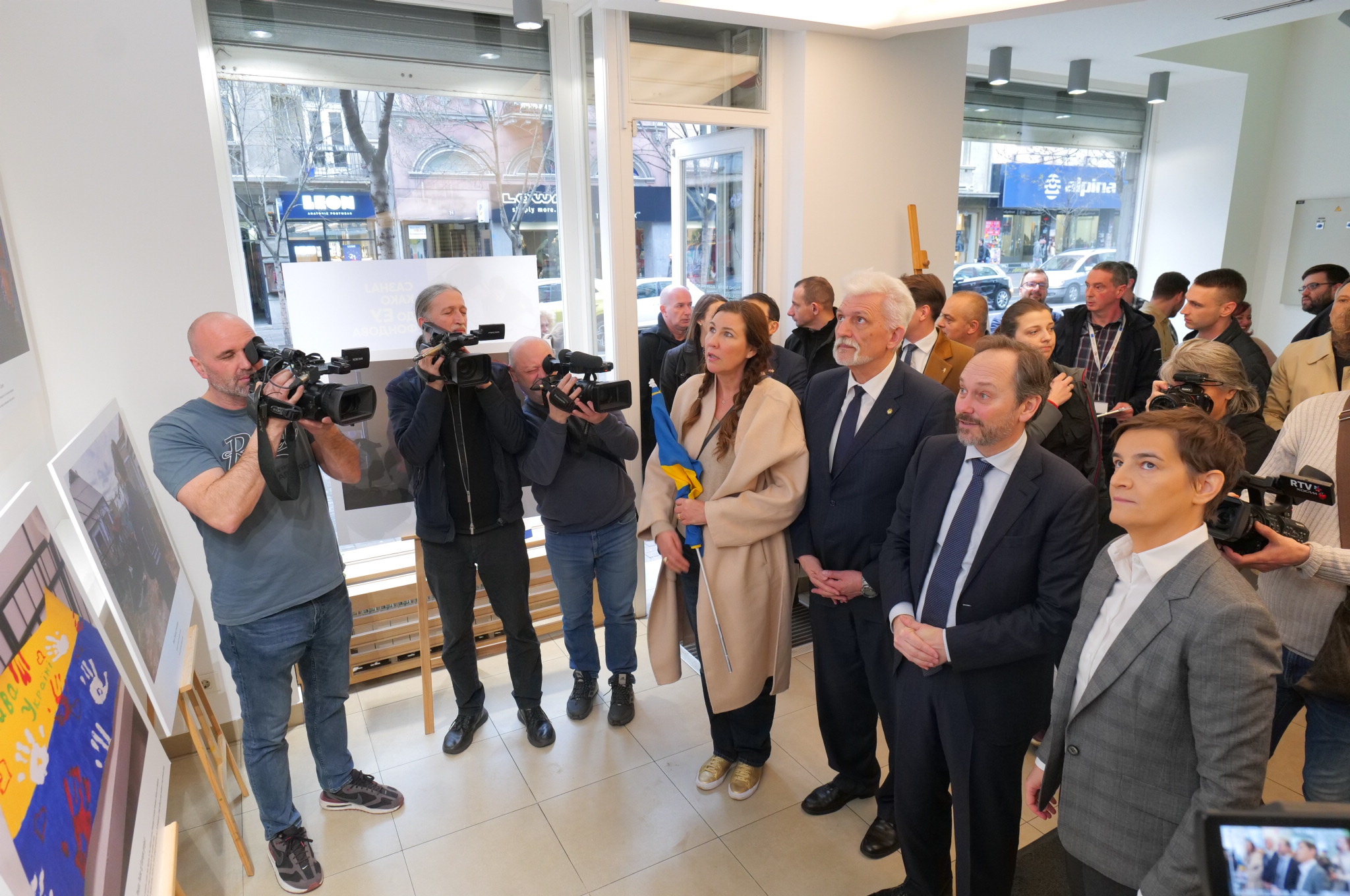
Earlier that day, the Solidarity March with Ukraine was held in the streets of Belgrade, with citizens, members of the Ukrainian community in Serbia, and representatives from diplomatic corps participating.
Additionally, a discussion was hosted at the EU Info Centre by the KROKODIL Association, focusing on the lives of Ukrainians in the wartime. Writers Yulia Brovarna and Andriy Lyubka participated in the conversation.
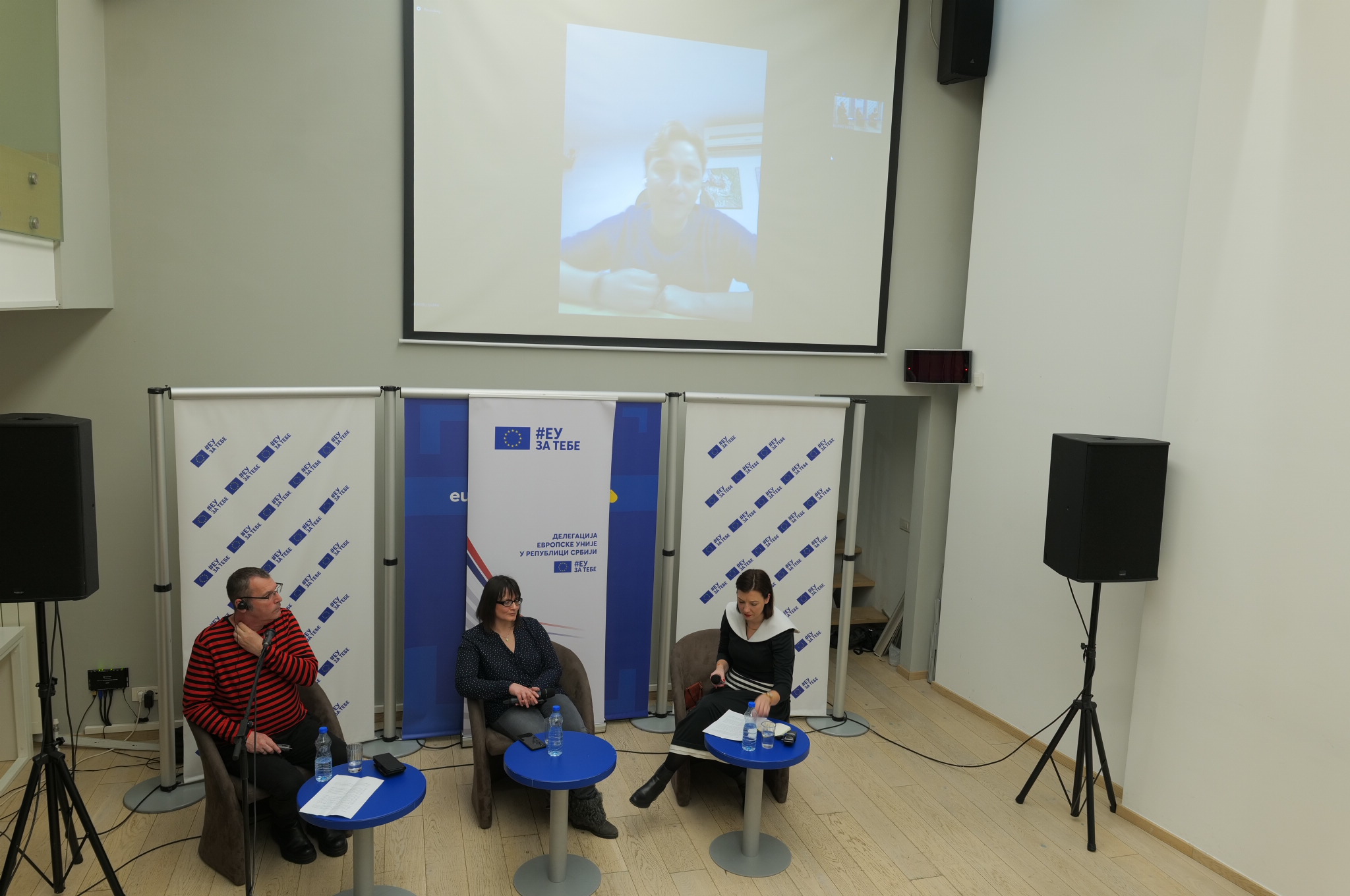
The exhibition “Solidarity with Ukraine” can be visited in the EU Info Centre until Friday, March 1, from 9 a.m. to 5 p.m.
More information:

